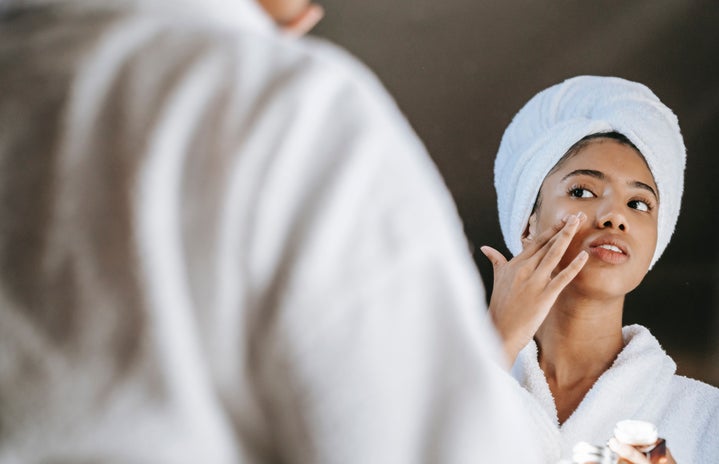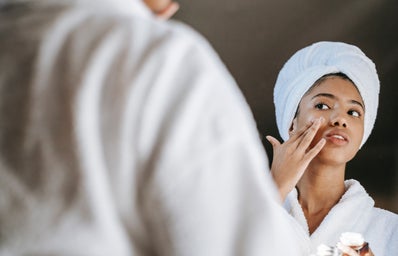I was sixteen when red dots began sprouting from my skin, and not the occasional pimple that could usually be expected for a teenage girl going through puberty. They began on my forehead and soon spread everywhere, so my quest for the perfect acne medication had begun.
I spent the next three years switching between multiple different medications, none of which worked well enough to give me the clear skin I had dreamed of. Instead, my acne got worse and painful cysts took root beneath my skin. I couldn’t get rid of them and the more they grew, the more my insecurities grew alongside them. During this time, I received unsolicited suggestions about how to better take care of my skin in the mornings and evenings while getting ready for bed from other women in my high school dorm. I was told about favorite face washes, masks, and skin patches, none of which worked for me. I became so frustrated with myself and my body’s inability to react to treatments the way I wanted it to. I started going out less and spent a large amount of time trying to learn how to properly cover my face with makeup. Finally, my freshman year of college, I decided to try the Holy grail of acne medicine, Accutane.
Accutane is often treated like a last resort when trying to get rid of acne. In order for it to be prescribed, I had to take monthly blood tests, submit monthly surveys, prove that I was using at least two forms of birth control and deal with an extensive list of side effects. A large component in Accutane is vitamin A, which when taken in excess can lead to bone, joint and muscle pain. It’s also a medication known to negatively affect moods, with the increased potential for developing depression. When I reflect back on these side effects it seems like a lot to deal with just to get rid of acne, but I was desperate.
Another thing about this drug is that before the acne gets better, it gets much worse. Within a month’s time it seemed like there wasn’t a spot on my face that wasn’t covered by deep red splotches. My body ached, especially my back, and my mood was on a steep decline. I struggled with confidence while trying to meet new people during my first year of college. I was reluctant to seek professional help for my mental health because I was afraid that I would be taken off the medication, because in order to feel better I felt that first I needed to look better.
Finally, six months later, my skin began to clear and in three months I no longer needed to take accutane anymore. It was as if my body had purged every last pimple it could conjure up. I began feeling more accepting of myself and I felt less pressure to hide what I looked like out of fear of judgment, but getting rid of my cystic acne was only a small step in gaining confidence. I began receiving professional help for my mental health which helped me more than I could have imagined. I still get break-outs on my skin and although it is no where close to being perfect, Accutane was incredibly helpful for me. My only regret was forcing myself to deal with my negative emotions without help because it wasn’t until I opened up about my mental health that I truly began to find self acceptance .

